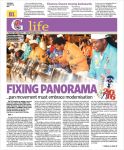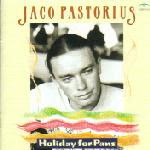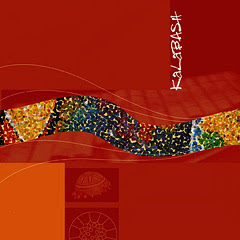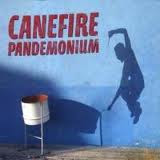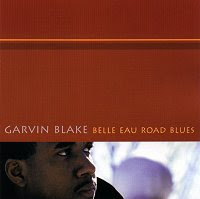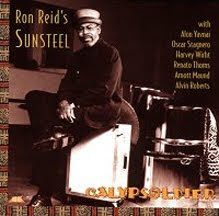The Steel pan is a beautiful creation originated in Trinidad & Tobago in the late 19.30's and is the only orchestral family of acoustic musical instruments to be invented in the 20th century. With instruments ranging from low bass to high sopranos, all made out of the same raw material (oil drums) makes this invention a magnificent achievement for people of Trinidad & Tobago.
Jamani Stewart was introduced to the Steelpans at a very young age, due to the fact his dad "Jamma" played the Steelpans, and had first hand experience of the benefits of playing music from a young age, felt it inessential to pass on the skills to his Children.

By time Jamani was 11 months old he was making his own beat box rhythms with his mouth, what was so amazing was the fact his rhythmic timing of his beats were so interesting & creative and steady to the beat, and this was before he could talk.
As time went on Jamani "the same as most babies love tapping beats on the tables and walls and was showing a great interest to music. Mom and Dad would encourage Jamani and his sister Rochella using spoons as sticks have little jam sessions on pots and pans, basins, they loved hearing the different tones that could be produced using simple house hold materials as instruments.
At two years old Jamani was brought a little plastic drum set channel his drumming skills, and save our walls, and furniture from being marked up. As he developed his skills he was encouraged to play in church.
At three years old he did his first public performance at the Jamma Caribbean musical
extravaganzer, held at the Midlands Art Centre Cannon Hill Park Birmingham,.It was amazing to see that in front of appropriately two and half thousand people he did not show a hint of nervousness.
Throughout all this time Jamani was always hearing his dad practice and doing shows on the Steelpans. Both Jamani and Rochella were allowed to play the pans once they learned the instrument had to be played softly and gracefully.
Rochella Stewart learning how to play softly.

Once leant how to play softly they could do little exercises to develop pitch and melodies , as time went on we found Jamani would gravitate to the pan's more, and started teaching himself simple melodies like, Happy birthday, when the saints, go marching in, pink panther and many more tunes.
After seeing all these signs of musical ability at 6 years old dad could see it was time to start developing his repertoire, starting with songs like what a friend we have in Jesus, and brushing up on songs like when the saints, as well as others, it was soon time for him to start gigging.
His Mom Angela made him his first costume, and he was more than ready to hit the stage.

Jamani at 7 years old was proving to be very comfortable on stage .
To view a live performance of 7 year old Jamani performing at the Merryhill Shopping Centre please click on link https://www.youtube.com/watch?v=uGscGPoK-7w

As time went on He would do regular solo performance at church and various functions, developing a wider verity of music at a young age proved to be more rewarding. He would also do regular performance with dad this help to develop things like improvising and ear training.

We soon found out he had the gift of perfect pitch and could mimic phrase's instantly. to view live video of Jamani & Dad performing together please click on link below.
https://www.youtube.com/watch?v=COGkVVjPe58&feature=related
Sometimes Jamani would be a bit shy to the real discipline it takes to learn a piece to performance standard so sometimes at rehearsals if dad was looking the other way he would make a run for it, upstairs or out the back door, and would love when dad had to chase and catch him and bring him back to the pan. But we took are time just learning a little more each day, we could defiantly see the repertoire growing to the extent were he was performing more solo gigs at schools and various functions,He was also developing the skill of addressing his audience in a more professional way.

By time jamani was 9 years old he had developed an extrourdanary gift to play jazz music and improvise he also new exactly when the song was going to finish.
Check out 9 year old Jamani playing now is the time "Jazz piece by Charlie Parker"
to view click link https://www.youtube.com/watch?v=qwOTP7keFYk&feature=related
When his dad founded the Birmingham school of pan, to teach local children the art of playing the steelpans, Jamani and Rochella would love to perform along side there friends in various carnivals.Playing in the blazing sun the hours were long and tiring but the sound of the steelpan kept them going.

Playing in the band gives members a chance to meet celebrities, pictured here is Rochella and Jamani after a performance at the Birmingham Symphony hall with TV star Rudoplh Walker (Patrick ) from East Enders

Jamani being a solo performer means you have to rely on yourself to run the show, were as in a band you have other musicians to help you out, which is all good as in developing team work skills, so getting the corrected balance between solo permanences and band work, is inessential skills to have for a young growing musician.
Over the years locally Jamani has performed at many venues, like the Birmingham National Exhibition Centre (NEC) Birmingham Symphony Hall, the National indoor arena, to mention a a few, he has travelled to Africa, Trinidad, guernsey, and many more places.. Also he has done many Radio and TV performances, recorded TV Advert for the Saint Kits and Nevis Jazz festival, performed on live TV in Trinidad & Tobago the home of the Steelpans

Picture above was taken in Trinidad TV studios, after performance by 3 Steelpan solo artist . Jamani Stewart, "UK'S young Steelpan Soloist" with one of "Trinidad & Tobago's top Steelpan soloist" Dane Gulston & Dad Mighty Jamma, "UK'S No1 Steelpan Soloist Champion", with Alison Hennessey Trinidad and Tobago TV presenter
To View 12 year old Jamani Performing On Children's BBC click on link below
https://www.youtube.com/watch?v=D6fpB-SESBM&feature=autoplay&...
The Steelpan as a solo instrument is capable of playing many different forms of music The lay out of notes on the Tenor pan (Soprano ) Jamani is performing on is set to a circle of 4th & 5th. the one pan carries 29 diffrent notes and was discovered by Trinidad Genius Tony Williams.

Many Steelpan soloist thrive to perform and improvise over well known jazz standards
to view video of 14 year old Jamani improvising & rehearsing a piece called Meditation please click on link https://www.youtube.com/watch?v=vKEw3AVNl8w&feature=related
Due to the fact the steelpan is a melodic percussive instrument it is very important to understand Melodies, Chords, & Harmonies as well as different kinds of beats & rhythms .Playing drums can be very helpful to develop the rhythmic understanding. Drumming also helps develop better wrist action for control of speed, dynamics & rolling notes.
Jamani started playing drums from 3 years old, and has always kept that passion with him. the next video clip was recorded at perry beaches school concert were Jamani played drums with his friends & Asian dhol drummers
to view 15 year old Jamani,s performance on drums please click on link below
https://www.youtube.com/watch?v=Z-mO9zVxq2o

Jamani Stewart as a young steelpan soloist has adapted the use of the instrument to perform songs that people in his age group would recognises, creating a refreshing mix of contemporary R & B, hip-hop, dancehall and reggae, performing songs by artistes like R. Kelly, Sean Paul, Akon,T.O.K, as well as performing traditional calypso,s jazz Ballard is helping to bring the steelpan to new audiences. As a young steelpan ambassador he has found the instrument is very popular with staff and pupil at his secondary school perry beaches.

Jamani started recording his first album at 12 years old and completed it by 13th birthay. he was quite impressed to see how his brand of steelpan music was received by people world wide, he also enjoyed TV coverage
To View Jamani in Action on Central News please click on link below
https://www.youtube.com/watch?v=uF4QesMbT_4

Jamani with Proud Dad "Mighty Jamma"
Coming from a musical family has help contribute in many different areas,. Jamani's two uncles as well as Dad are very involved in the music also, Uncle Barry (MACKADUB) Stewart help with all the technical Recording and production side of the album, Uncle Norman ( Pan Maestro ) Stewart Tune's the Steelpans, and his Dad Jamma Stewart is UK'S No1 Steelpan Soloist Champion, so a lot of input from different directions has contributed to the production, not forgetting his sister Rochella Stewart who also plays the pans, and did all the art work for the CD. & Mom who makes his costumes for public performances.

Jamani & Rochella
Team work is always a good thing, when Jamani performs with his dad he gets a chance to explore new musical ideas with improvisation and melodies and understanding the language of music in deeper depths.Check out this on rehearsed performance of improvisation on the stop with Jamani & his Dad.
To view video click on link https://www.youtube.com/watch?v=wPb7Dpi8X4c

using the steelpan to play diffrent stlyes of music can only help the instrument to move forward into interrogation with conventional instruments.

Jamani also love rapping and is a well known in artist in grime and goes under the name of J Marnz and is a group called Tinyan.
Check out J marnz in 5 star media video shoot . click link below to view
https://www.youtube.com/watch?v=dKs9SPVDhPU&feature=related
Jamani has activity been a pioneer for the new electronic steelpan midi controllers, these instruments have notes laid out the sam as an original steelpan but can be hooked up to a computer and used to play different sounds, like piano, trumpets, drums, etc.
At 12 Years old Jamani was commissioned by Alternate mode the makers of the PANKAT to do a video.
To View Jamani on PANKAT click on Link https://www.youtube.com/watch?v=N1r_MGuUjq8

Recently Jamani had the pleasure of meeting the inventor of the new epan (electronic pan ) Salmon Cupid, who also asked Jamani to make a video demonstration of the epan. These instruments are not replacements for the traditional Steelpans, but can be very useful for studio work when building tracks.
To View Jamani Demonstrate the epan click on links below
Demo 1 https://www.youtube.com/watch?v=3OSOrymuA6A&feature=related
Demo 2 https://www.youtube.com/watch?v=Vywryggbdec&feature=related
It was a pleasure to see Jamani getting awarded at school for unstanding musical achievements,

Happy Family Friend TV Celebrity Rusty Lee at Perry Beaches Awards Evening

Angela Stewart, Rusty & Jamma proud parents of Jamani celebrate with good friend Rusty

Proud head Master Liam Noland Perry Beaches school

To hear sample's of Jamani please visit https://www.youtube.com/watch?v=OU2MCElFXrU
For information general inquires, on workshops/ performances please http://www.jammasteelpan.net/

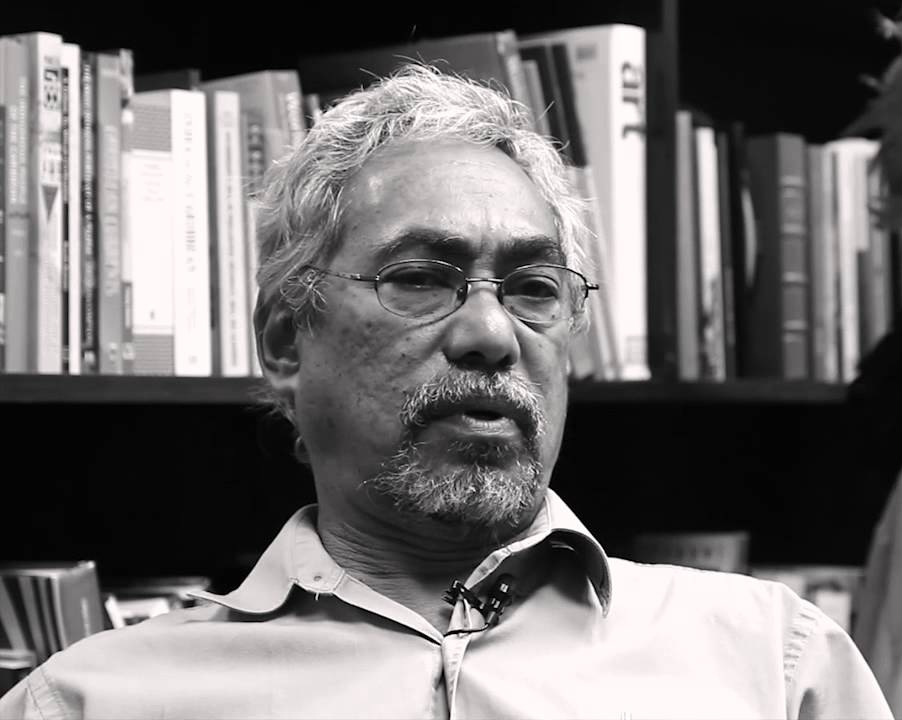 A simple answer could be that Panorama represents the apotheosis of the national instrument. That reasoning was supplied by steelpan researcher Dr Kim Johnson, who spoke to the T&T Guardian about the idea of the continuation of the state funded event within the context of moribund standards for the industry of steelpan throughout the year. Johnson noted the history of Panorama: “Panorama was the PNM government of the 1960s taking control of the steelband movement, what they saw as national culture. The strategy included making it more lucrative to play in Panorama because of prize money and appearance fees than to play in parties and fêtes.”
A simple answer could be that Panorama represents the apotheosis of the national instrument. That reasoning was supplied by steelpan researcher Dr Kim Johnson, who spoke to the T&T Guardian about the idea of the continuation of the state funded event within the context of moribund standards for the industry of steelpan throughout the year. Johnson noted the history of Panorama: “Panorama was the PNM government of the 1960s taking control of the steelband movement, what they saw as national culture. The strategy included making it more lucrative to play in Panorama because of prize money and appearance fees than to play in parties and fêtes.”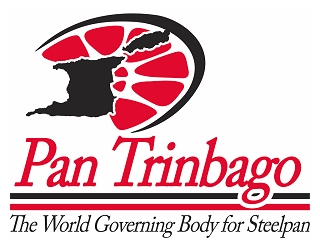 In these modern times, the State, spends millions on the continuation of Carnival both as catharsis and economic input via tourism and the economic multiplier effect of trade at that time. In 2016, $270 M
In these modern times, the State, spends millions on the continuation of Carnival both as catharsis and economic input via tourism and the economic multiplier effect of trade at that time. In 2016, $270 M 
 Kim Johnson says that “Panorama is a competition for arrangers.” However, there is a kind of stasis in the growth of prize winning arrangers. Despite the embargo on one arranger arranging for multiple bands many years ago, in the last 35 years only eight arrangers have “won” in the large band category, the late Jit Samaroo winning nine times, Leon “Smooth” Edwards winning eight times, Len “Boogsie” Sharpe winning seven times among the leaders.
Kim Johnson says that “Panorama is a competition for arrangers.” However, there is a kind of stasis in the growth of prize winning arrangers. Despite the embargo on one arranger arranging for multiple bands many years ago, in the last 35 years only eight arrangers have “won” in the large band category, the late Jit Samaroo winning nine times, Leon “Smooth” Edwards winning eight times, Len “Boogsie” Sharpe winning seven times among the leaders.